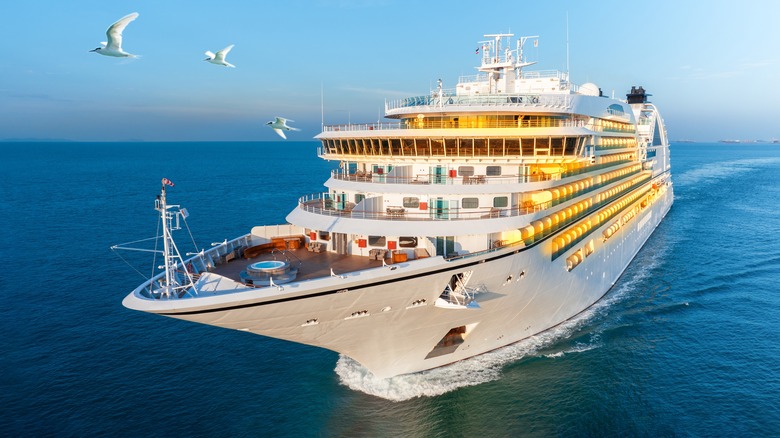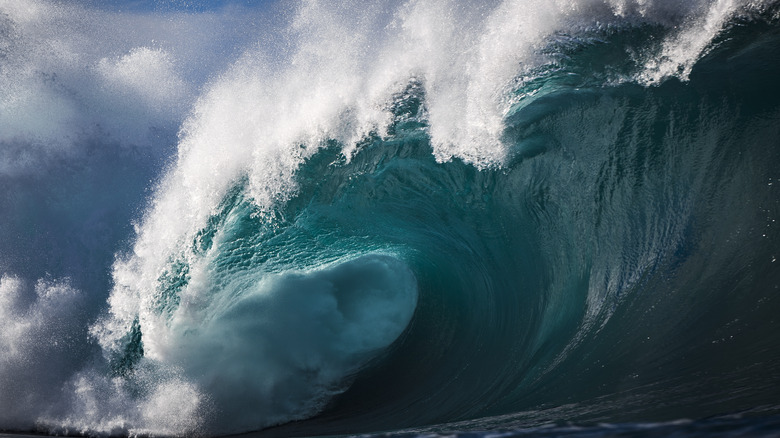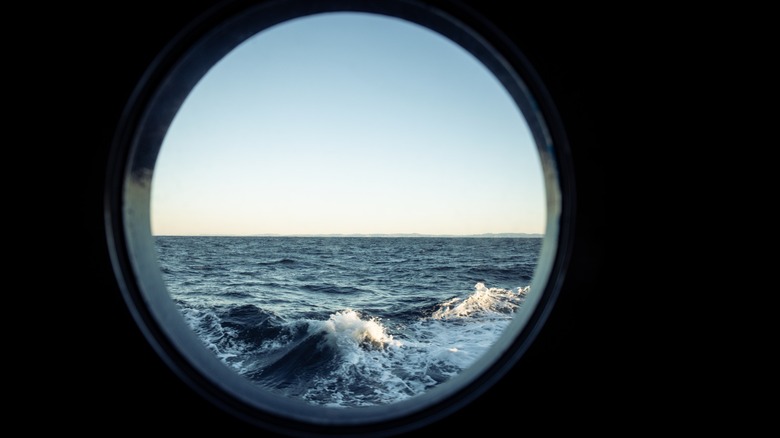Why You Shouldn't Worry About Rogue Waves During Your Next Cruise
So, you've booked your next cruise and it looks like an absolute paradise. But, rather than daydreaming about how amazing it will be, your brain suggests that you instead consider every possible thing that could go wrong. "What if a travel delay causes you to miss your cruise?" "Should you be nervous about rough seas on your cruise?" The list of worse-case scenarios can go on and on. This anxiety is natural and simply your brain's effort to keep you protected. But, with today's technology, safety measures, and more, traveling via cruise has never been more worry-free.
And while things can go wrong, there's a small chance that they actually will. Encountering rogue waves while at sea is a common fear that can arrive pre-departure. It is a terrifying thought that an enormous tidal wave could come out of nowhere and swallow your ship. But, science shows that this is a very unlikely reality.
Rogue waves explained
For a long time, rogue waves weren't considered anything more than an old legend rumored by sailors. However, today, they are recognized and studied by the scientific community. The National Oceanic and Atmospheric Administration defines rogue waves as " ...waves which are greater than twice the size of surrounding waves." In 1995, scientists were able to measure their first rogue wave off the coast of Norway. In this instance, an 80-foot tall wave smacked into the side of an oil rig and was captured digitally. Scientists today still don't know exactly how these mega waves form, making them highly unpredictable.
At the moment, the scientific community has hypothesized two possible causes for rogue waves. One is that swells pass over one another, coinciding and multiplying in size. Another is that storm-related water currents intersect with waves that are going in a divergent direction. Whatever the reason that rogue waves come into being, you can rest assured knowing that it is very rare that they do.
The likelihood of encountering a rogue wave
There have been occasions in which rogue waves have actually come in contact with commercial cruise ships. In fact, this happened just in 2022. On the coast of Argentina, a cruise ship with the company Viking Polaris was hit by an enormous, powerful rogue wave. Although the ship remained afloat, the wave crashed through a series of windows. In the event, an older passenger's life was lost. In 2007, a cruise ship off the coast of Georgia in the U.S. was hit by a rogue wave seven stories high, resulting in the injury of four passengers.
In a 2019 study published by Scientific Reports, researchers found that rogue waves are becoming decreasingly common but increasingly severe. Scientists estimate that every one out of 10,000 waves is a rogue wave. Though it is a travesty that this natural phenomenon has injured and even killed cruise ship passengers, you do not have to live in fear that your cruise will have a similar fate. But, if you do want to be extra cautious, you should know that they are most common on the coast of South Africa and occur most frequently during the winter season. If you avoid cruises in that location and at that time of year, you'll have an even more minuscule chance of hitting a rogue wave.


